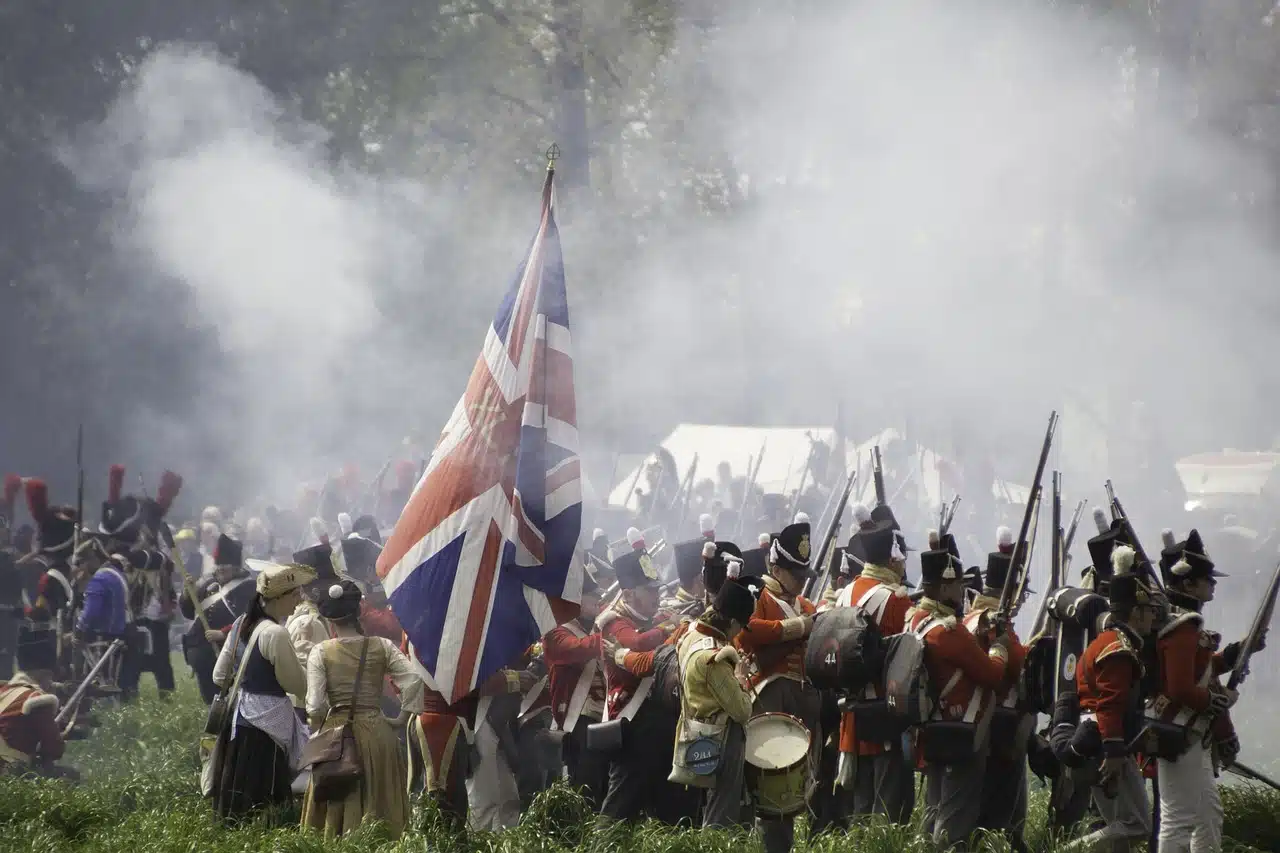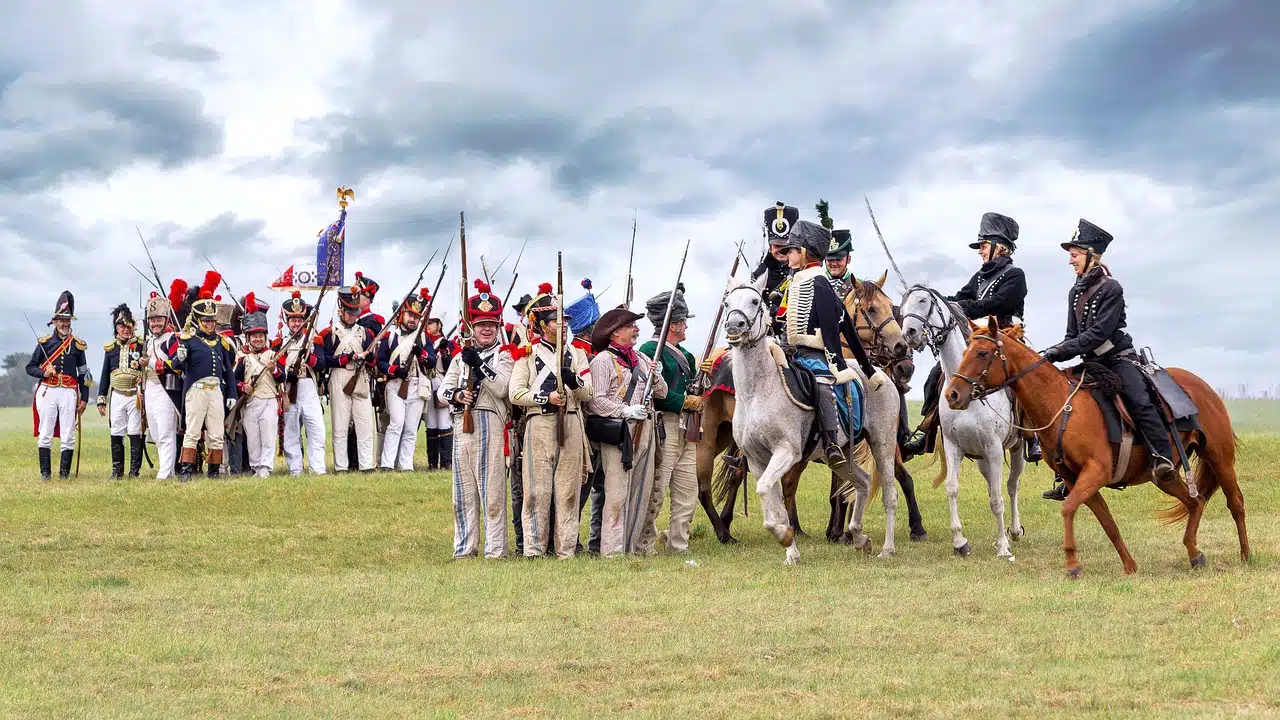
In these wars, various anti-Napoleonic coalitions faced the troops of the French Empire.
The Napoleonic Wars are a series of armed confrontations that took place between May 1803 and November 1815 . In these conflicts, the troops of the French Empire led by Napoleon Bonaparte fought with the armies of different European coalitions.
Historians recognize the existence of seven Napoleonic wars, although the first are also part of the so-called French revolutionary wars . After the end of the last of the confrontations, an international meeting known as the Congress of Vienna was held that reordered European territory and aimed to reestablish absolutism.
Historical context of the Napoleonic Wars
The historical context of the Napoleonic Wars is marked by the development and consequences of the French Revolution . This social process developed between 1789 and 1799 and caused the fall of the absolute monarchy of Louis XVI and the end of feudalism .
The absolute monarchy was followed by a constitutional monarchy for one year (also with Louis XVI at the head), which was succeeded by the First French Republic until 1799 .
On November 9, 1799 (or, according to the revolutionary calendar, the 18th of Brumaire ), Napoleon carried out a coup d'état that allowed him to establish the consulate as a form of government. Finally, in 1804 , Consul Bonaparte obtained authorization to access the title of emperor, giving birth to the French Empire or Napoleonic Empire .
In this context the development of the Napoleonic wars began. In any case, there is no consensus on the beginning of these war conflicts. The first two confrontations (the war of the first coalition and the war of the second coalition ) are also integrated into the events known as the French revolutionary wars . Thus, many analysts usually conventionally establish that the Napoleonic Wars began in 1803 , when the United Kingdom declared war on France after a peaceful period marked by the Treaty of Amiens .

The Napoleonic Wars included great military logistics and an enormous deployment of troops.
The first coalition
The war of the first coalition was a consequence of the first initiative that several European countries developed together to try to stop the French Revolution . The battles took place between 1792 and 1797 , beginning as a reaction to the French declaration of war against Prussia and Austria .
The Kingdom of Prussia , the Habsburg Monarchy , the United Kingdom of Great Britain , the Kingdom of Sardinia , the Kingdom of Naples , the United Provinces of the Netherlands , the Holy Roman Empire and the Kingdom of Portugal made up that first coalition .
The Battle of Marquain , the Battle of Jemappes , the Battle of Valmy , the Battle of Neerwinden , the Battle of Mas Deu and the Battle of Fleurus were some of the most important events of this war which culminated in the victory of France , which had Spain on his side since 1796 . The French came to control northern Italy, the Rhineland and the until then Austrian Netherlands . The conflict was closed with the signing of the Treaty of Campo Formio .

In the coalition wars against Napoleon's army, various alliance systems came into play.
The Napoleonic Wars: 1798-1802
The second coalition had as members the Holy Roman Empire , the United Kingdom , the Archduchy of Austria, the Kingdom of Portugal , the Kingdom of Naples , the Kingdom of Sicily , the Ottoman Empire , the Russian Empire and the Papal States . The objective of the alliance in this phase of the Napoleonic Wars was to reverse the French conquests.
War actions were launched in 1798 , when Napoleon was promoting the Egyptian campaign . Upon his return, he carried out the coup d'état and assumed all power of his nation, leading the army in the following stages of this war.
The Battle of Marengo and the Battle of Hohenlinden were among the most relevant battles of the Second Coalition War, which culminated in the signing of the Treaty of Amiens and the Treaty of Lunéville and a new French victory.
Another attempt to stop Bonaparte
In 1805 the third coalition was established to unseat Napoleon Bonaparte and reduce French cultural, political and military influence in Europe. On this occasion, the United Kingdom , the Russian Empire and the Austrian Empire led the team that faced France , supported by the Kingdom of Spain .
This phase of the Napoleonic Wars lasted three years, where the legendary Battle of Trafalgar took place. There, the British navy led by Horatio Nelson managed to defeat the Napoleonic fleet, dismantling the French emperor's intention to invade England .
However, the war of the third coalition also ended with a positive outcome for France , which was able to consolidate its empire, conquer Naples and promote the creation of the Confederation of the Rhine (formed by its client states). Additionally, the Holy Roman Empire was dissolved.
The Napoleonic Wars of 1806 to 1809
The Napoleonic Wars of 1806 to 1809 took place in two major confrontations.
The fourth coalition of the Kingdom of Prussia , the Russian Empire , the United Kingdom of Great Britain and Ireland , the Kingdom of Saxony , the Kingdom of Sweden and the Kingdom of Sicily faced the French Empire and the Spanish Empire between 1806 and 1807 , until the signing of the Treaty of Tilsit . This French victory led Prussia to lose half of its territories, as it had to cede them to the Grand Duchy of Warsaw , the Kingdom of Westphalia headed by Jerome Bonaparte ( Napoleon's younger brother) and France itself.
The fifth coalition was based on the agreement between the United Kingdom and the Austrian Empire , accompanied by the Kingdom of Portugal , the Kingdom of Sicily , the Kingdom of Sardinia and the Regency of Spain . Events unfolded for six months in 1809 , until France achieved its fifth victory in the Napoleonic Wars.
The fall of Napoleon
The sixth coalition , whose war took place between 1812 and 1814 , had as its main references the Russian Empire , the Kingdom of Spain , the United Kingdom , the Kingdom of Portugal , the Kingdom of Prussia , the Austrian Empire and the Kingdom of Sweden . This group eventually managed to defeat and overthrow Napoleon Bonaparte .
The Battle of Leipzig was the decisive event that marked the fall of Napoleon . Then, on March 30, 1814 , the allies managed to enter Paris and Napoleon Bonaparte's abdication took place on April 13 . The Treaty of Fontainebleau set the conditions for his exile to the island of Elba , concretizing the restoration of the Bourbons at the hands of Louis XVIII . The Congress of Vienna was also held.
The end of the Napoleonic wars
The end of the Napoleonic Wars came with the Seventh Coalition , when the powers of the Congress of Vienna intervened upon Napoleon 's return to Paris in 1815 .
With the so-called Hundred Days Campaign, the United Kingdom , Prussia , Austria and Russia inflicted definitive defeat on Bonaparte at the Battle of Waterloo . Thus, Napoleon went into exile again (this time, to the island of Saint Helena ) and Restoration Europe or the European Restoration began.
